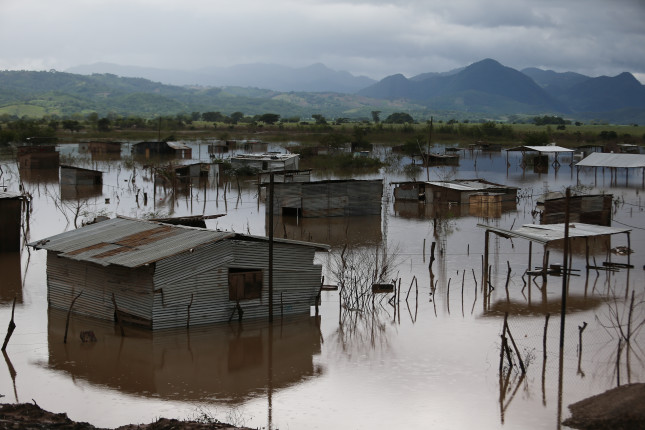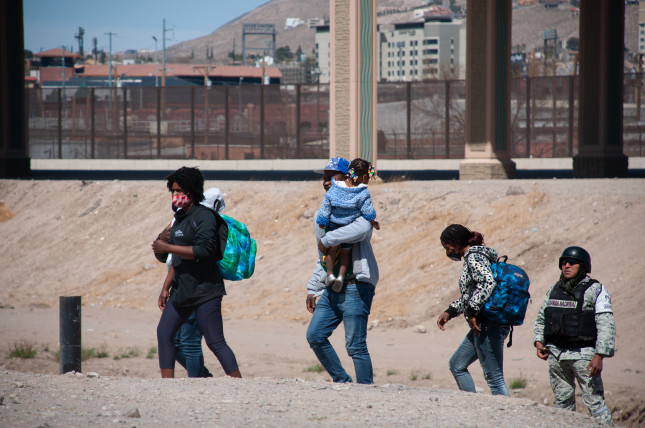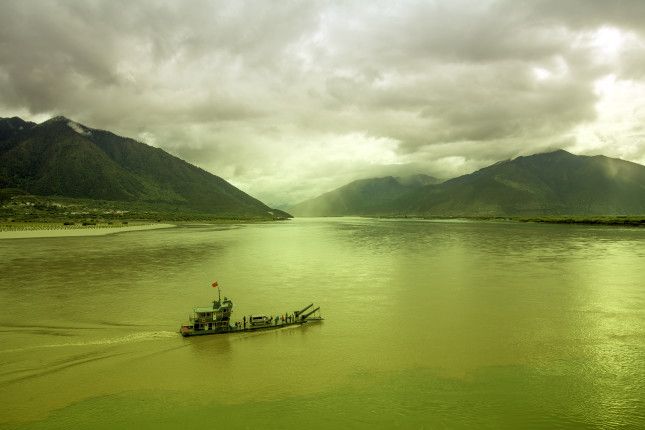-
Environmental Change, Migration, and Peace in the Northern Triangle
›“There is a growing recognition that climate change is going to affect security and it’s increasingly shaping peoples’ decisions about where to move, where to live, and how to plan their futures, but how migration, climate, and insecurity connect and drive risks is not always as clear cut as the headlines would have us believe,” said Cynthia Brady, Global Fellow and Senior Advisor with the Wilson Center’s Environmental Change and Security Program, at last month’s International Conference on Environmental Peacebuilding. The roundtable discussion, “Environmental Change, Migration, and Peace in Central America’s Northern Triangle” drew on the Wilson Center’s framework to improve predictive capabilities for security risks posed by a changing climate, developed in partnership with the National Oceanic and Atmospheric Administration (NOAA). Applying the framework to the Northern Triangle—Honduras, Guatemala, and El Salvador—panelists discussed complex challenges and proactive approaches for building climate resilience and adaptive capacity.
-
Tethering to Human Rights in the Pushes and Pulls of Human Mobility
›“In the movement toward complex solutions, at the heart of it all we’re talking about individuals with their own complex issues as they are moving through different scenarios,” said Shanna McClain, Disasters Program Manager with the National Atmospheric and Space Administration, at last month’s International Conference on Environmental Peacebuilding. The panel discussion, “Resource Implications of Human Mobility and Migration,” focused on what data shows—and doesn’t show—are the complex linkages between climate, conflict, and mobility. Panelists discussed how more integrated programming and policy actions are needed to make migration safe, orderly, and voluntary, and how to keep human rights at the center of the complex processes.
-
Simmering Glacial Geopolitics: Upcoming Crises with Transboundary Water Cooperation on Asia’s Back Burner
›
People’s lives and livelihoods are at stake if China does not cooperate with its regional neighbors over downstream effects of the Tibetan plateau’s glaciers. The Hindu Kush Himalayas’ (HKH) numerous glaciers are known as the “Water Towers of Asia” and the “Third Pole.” Over 1.9 billion people depend on water systems that stem from HKH glaciers. Climate change will fundamentally alter the hydrology of the water basins—killing or displacing thousands of people as the changes unfold. Asia cannot continue with national or bilateral plans being the primary climate change adaptation strategies: basin-wide cooperation is essential. Unfortunately, conflicts and simmering disputes in the region make this a staggering goal to achieve.
Showing posts by Jill Baggerman.







